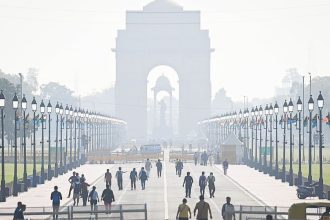Vice President Jagdeep Dhankhar said that while many issues are often left unspoken due to system-related or political reasons, he does not follow that approach when it comes to farmers. Speaking at an event organized by the Indian Council of Agricultural Research (ICAR) in Mumbai, he said it is his duty to understand and speak about the pain and challenges faced by farmers.
He recalled telling the gathering, “It is our responsibility to embrace the farmer. We cannot trick them under any circumstances. It should not be left to the farmer to show us their pain—we must be sensitive enough to understand it on our own.”
He also referred to Indian traditions where birds could sense rain, and animals like peacocks would alert villagers about approaching people. “Similarly, we must develop a deep sensitivity toward farmers’ welfare,” he said.
The Vice President stressed that democracy thrives on expression and dialogue. He emphasized that any delay or lack of sincerity in engaging with farmers is not acceptable. He praised Madhya Pradesh’s Agriculture Minister Shivraj Singh Chouhan for recognizing farmers’ concerns and continuing dialogue with them.
Dhankhar also discussed government support schemes like the PM-Kisan Samman Nidhi, where farmers receive Rs 6,000 per year. However, he said this amount should be adjusted for inflation, just like the salaries of MPs and MLAs are. “The same ₹6,000 is being given for years, but the value of money has changed,” he added.
Referring to the U.S. model, Dhankhar said farmers there earn more than the average household, and all government assistance is given directly to them. In contrast, Indian farmers don’t always feel the benefit of subsidies like those on fertilizers.
He proposed a shift in the way support is provided: “If we transfer subsidies directly to the farmer instead of through fertilizers and other channels, every farmer household in India could receive at least Rs 30,000 per year.”
He concluded by saying that it’s time for serious thinking and research into how best to help farmers, ensuring they benefit directly and fully from the support meant for them.










